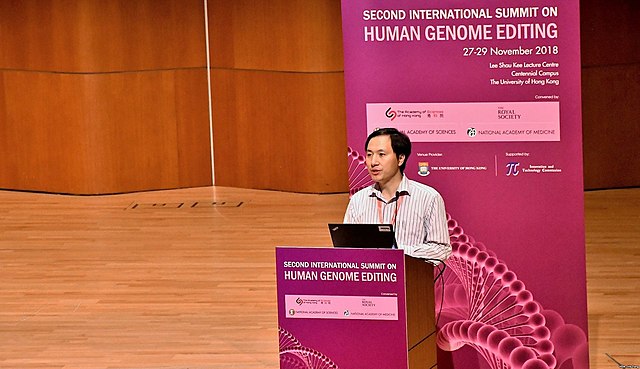Scientific Ethics and Gene Edited Babies
By Françoise Baylis,
The Boston Globe
| 01. 05. 2020
Three babies, three scientists, three years in jail, and a three million yuan fine. This is the story of He Jiankui and the world’s first genome edited babies.
In November 2018, on the eve of the Second International Summit on Human Genome editing in Hong Kong, news leaked that a Chinese scientist had created genome-edited twins using CRISPR technology, which allows scientists to remove, add, or alter DNA. The news that genetically modified embryos had been used to create the twins was confirmed by He in a YouTube video and a follow-up presentation at the Hong Kong Summit. He explained that he had modified the CCR5 gene to provide the infants with resistance to HIV. During the Q&A period following his presentation, He confirmed that there was another ongoing pregnancy.
He’s experiment was widely condemned on both scientific and ethical grounds. In China, scientists insisted the research was premature. They also feared this controversial experiment would tarnish their scientific reputation for having failed to take ethics seriously. Over a hundred Chinese scientists signed a letter condemning the CRISPR baby experiment...
Related Articles
By Diaa Hadid and Shweta Desai, NPR | 01.29.2026
MUMBRA, India — The afternoon sun shines on the woman in a commuter-town café, highlighting her almond-shaped eyes and pale skin, a look often sought after by couples who need an egg to have a baby.
"I have good eggs,"...
By George Janes, BioNews | 01.12.2026
A heart attack patient has become the first person to be treated in a clinical trial of an experimental gene therapy, which aims to strengthen blood vessels after coronary bypass surgery.
Coronary artery bypass surgery is performed to treat...
By Staff, ScienceDaily | 01.05.2026
Scientists at UNSW Sydney have developed a new form of CRISPR technology that could make gene therapy safer while also resolving a decades-long debate about how genes are switched off. The research shows that small chemical markers attached to DNA
...
Following a long-standing CGS tradition, we present a selection of our favorite Biopolitical Times posts of the past year.
In 2025, we published up to four posts every month, written by 12 authors (staff, consultants and allies), some in collaboration and one simply credited to CGS.
These titles are presented in chronological order, except for three In Memoriam notices, which follow. Many more posts that are worth your time can be found in the archive. Scroll down and “VIEW...




